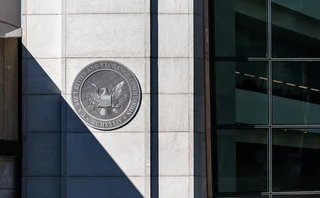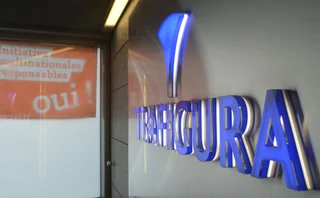
Where the buck stops
Risk management units alone cannot avoid the damage from periodic bouts of irrational exuberance. That responsibility lies with the chief executive, argues David Rowe

The efficient markets hypothesis (EMH) argues that, in free and competitive markets, prevailing prices always reflect a process that collectively incorporates all relevant information. Like so many hypotheses in the social sciences, this one is only approximately valid. Free markets have proven time and again that they are far more efficient at guiding investment decisions than central government control or the pseudo-market model of 'crony capitalism'. Most particularly, they are far more
Only users who have a paid subscription or are part of a corporate subscription are able to print or copy content.
To access these options, along with all other subscription benefits, please contact info@risk.net or view our subscription options here: http://subscriptions.risk.net/subscribe
You are currently unable to print this content. Please contact info@risk.net to find out more.
You are currently unable to copy this content. Please contact info@risk.net to find out more.
Copyright Infopro Digital Limited. All rights reserved.
As outlined in our terms and conditions, https://www.infopro-digital.com/terms-and-conditions/subscriptions/ (point 2.4), printing is limited to a single copy.
If you would like to purchase additional rights please email info@risk.net
Copyright Infopro Digital Limited. All rights reserved.
You may share this content using our article tools. As outlined in our terms and conditions, https://www.infopro-digital.com/terms-and-conditions/subscriptions/ (clause 2.4), an Authorised User may only make one copy of the materials for their own personal use. You must also comply with the restrictions in clause 2.5.
If you would like to purchase additional rights please email info@risk.net
More on Risk management
SEC leadership change puts Treasuries mandate under scrutiny
FICC clearing models approved, but critics think delay could revive prospects of done-away trading
Markets Technology Awards 2025: Untangling the knots
Vendors jockeying for position in this year’s MTAs, as banks and regulators take aim at counterparty blind spots
Risk Awards 2025: The winners
UBS claims top derivatives prize, lifetime award for Don Wilson, JP Morgan wins rates and credit
An AI-first approach to model risk management
Firms must define their AI risk appetite before trying to manage or model it, says Christophe Rougeaux
BofA sets its sights on US synthetic risk transfer market
New trading initiative has already notched at least three transactions
Op risk data: At Trafigura, a $1 billion miss in Mongolia
Also: Insurance cartels, Santander settlement and TSB’s “woeful” customer treatment. Data by ORX News
Cyber risk can be modelled like credit risk, says Richmond Fed
US supervisors may begin to use historical datasets to assess risk at banks and system-wide
The changing shape of risk
S&P Global Market Intelligence’s head of credit and risk solutions reveals how firms are adjusting their strategies and capabilities to embrace a more holistic view of risk







